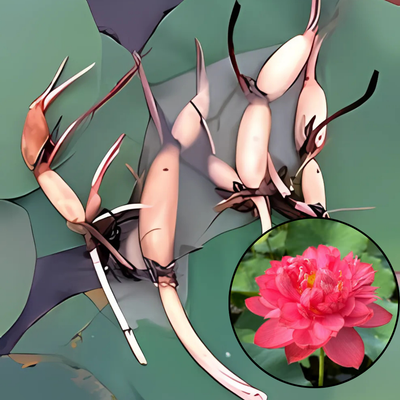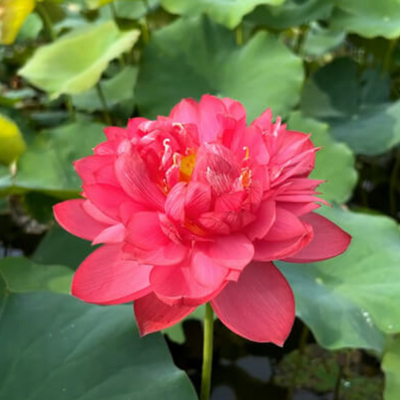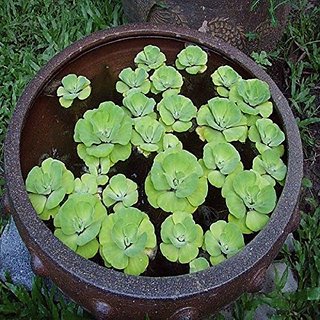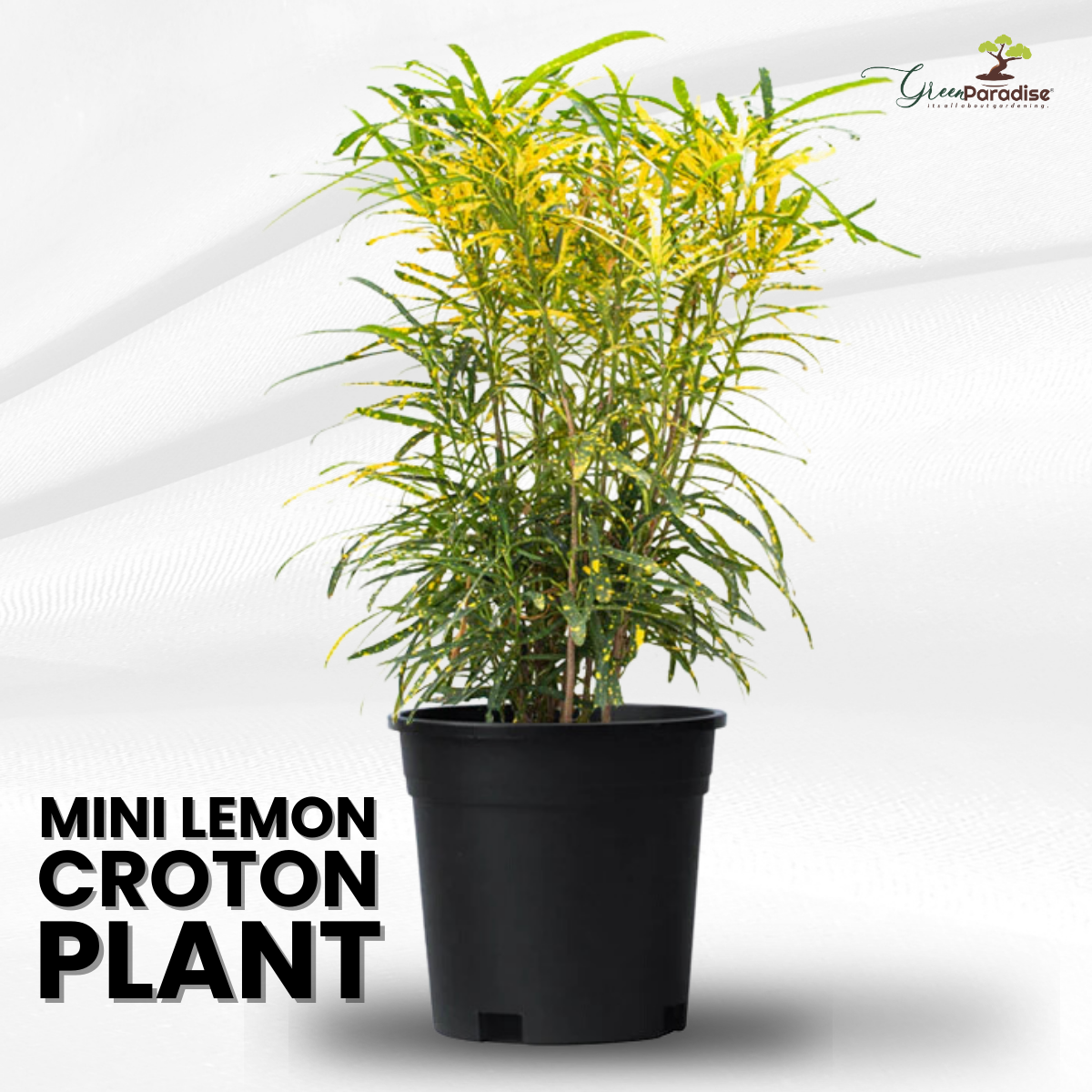
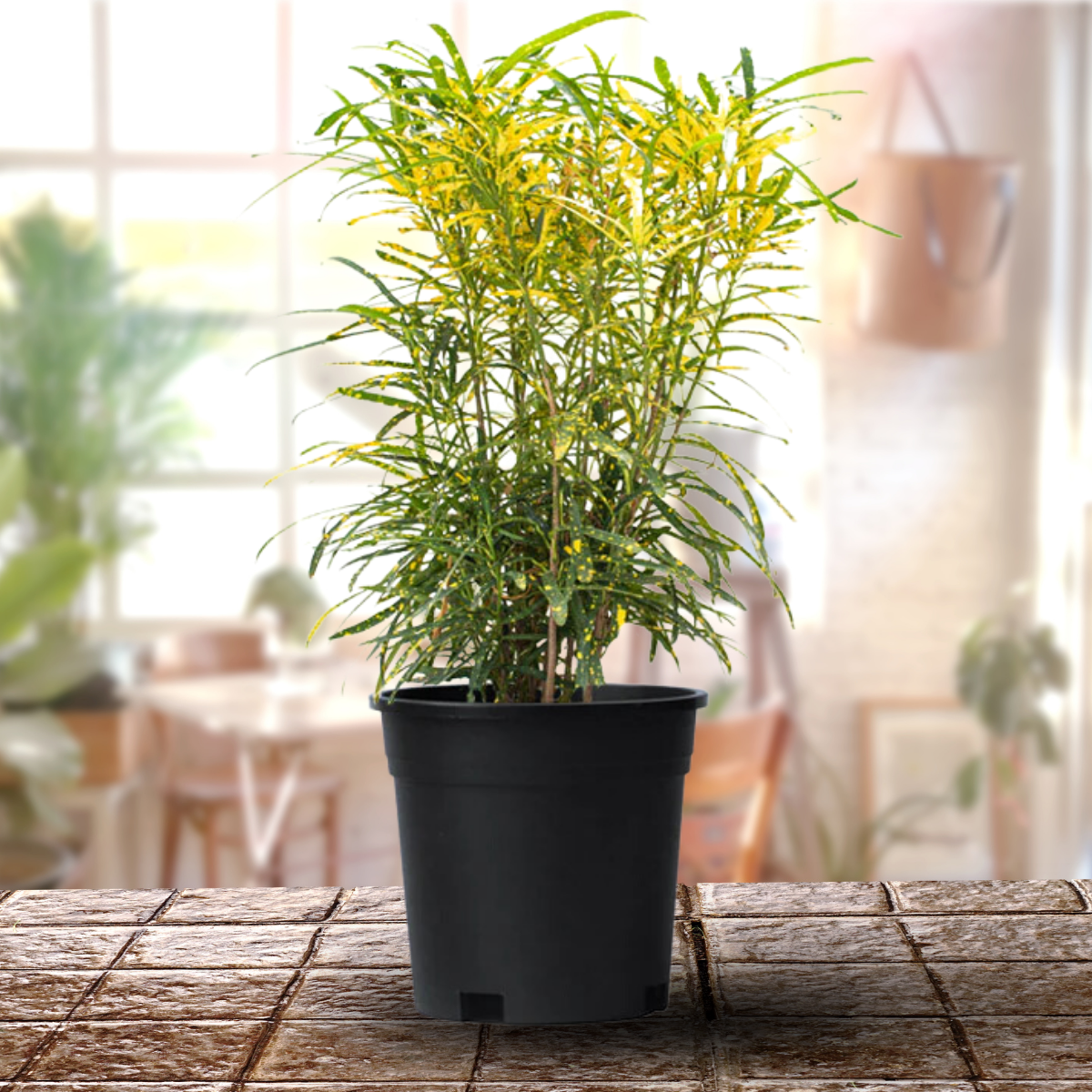
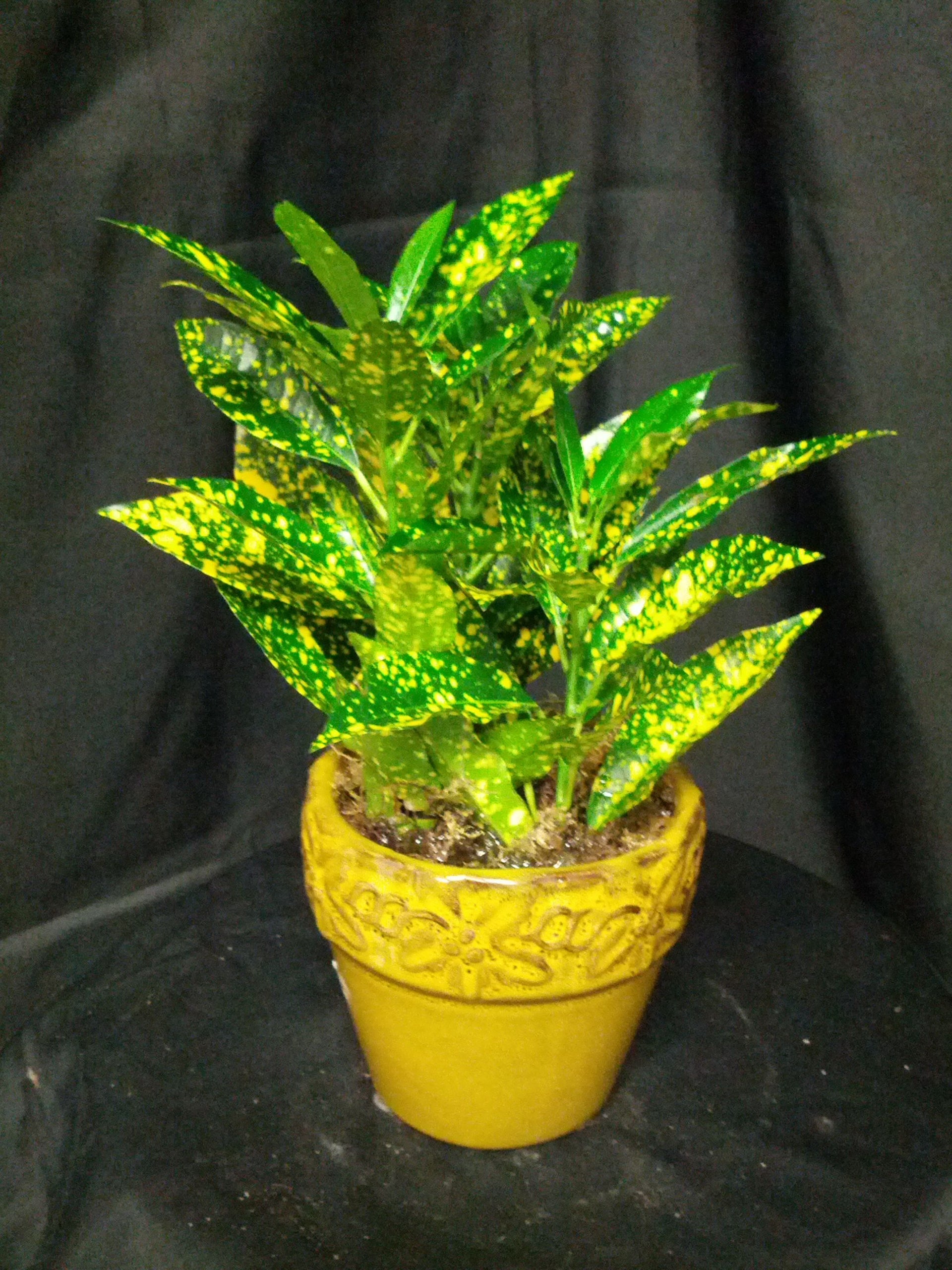
Introducing Our Exquisite Mini Lemon
Croton Plant: A Splash of Color and
Elegance for Your Home
Elevate your indoor greenery with our Mini Lemon Croton Plant, a botanical marvel that adds a burst of vibrant hues and lush beauty to any space. As a premier choice for plant enthusiasts, this petite and charming croton variety is a visual feast for the eyes, boasting a plethora of benefits and unique features that make it a must- have addition to your factory collection.
Key Features:
Striking Foliage:
- The Mini Lemon Croton Plant is renowned for its breathtaking foliage, adorned with a splendid array of colors.
- From radiant shades of lemon yellow to deep green and fiery orange, each leaf is a masterpiece of nature, creating an eye-catching display that transforms your living space into a botanical haven.
Compact Size, Big Impact:
- Perfect for both small apartments and spacious homes, this mini croton packs a punch without taking up too much space.
- Its compact size makes it an ideal choice for tabletops, shelves, or desks, allowing you to enjoy the beauty of nature even in limited areas.
Low Maintenance:
- Designed for plant enthusiasts of all levels, the Mini Lemon Croton is remarkably easy to care for.
- With minimal attention, it thrives, making it an excellent choice for busy individuals who crave the beauty of nature without the fuss.
Air Purification:
- Beyond its aesthetic appeal, this mini croton contributes to a healthier indoor environment by naturally purifying the air.
- Breathe easy as the plant works tirelessly to remove common household toxins, promoting a cleaner, fresher atmosphere.
Unique Leaf Patterns:
- Each leaf of the Mini Lemon Croton is adorned with distinctive patterns, adding an element of uniqueness to every plant.
- No two are alike, ensuring that your croton is a one-of-a-kind masterpiece that reflects the diversity and beauty found in nature.
Benefits:
Mood-Boosting Ambiance:
- The vibrant colors of the Mini Lemon Croton have been proven to uplift mood and reduce stress.
- Create a positive and serene atmosphere in your home or office with this lively and cheerful companion.
Year-Round Beauty:
- Unlike some plants that bloom seasonally, the Mini Lemon Croton maintains its stunning appearance throughout the year, bringing continuous joy to your surroundings.
Adaptable to Various Light Conditions:
- Whether your space is bathed in sunlight or enjoys the subtlety of indirect light, the Mini Lemon Croton is adaptable to different light conditions, making it a protean choice for colorful inner settings.
Ideal Gift:
- Looking for the perfect gift for a loved one? The Mini Lemon Croton Plant is a thoughtful and enduring gesture, symbolizing growth, prosperity, and the beauty of shared moments.
Handpicked for Quality:
- Our Mini Lemon Croton Plants are meticulously handpicked to ensure that you receive the healthiest and most vibrant specimens.
- Delivering a product that surpasses your prospects is something we are proud of.
Expertly Packaged:
- To ensure the safe arrival of your new botanical friend, each Mini Lemon Croton is expertly packaged, protecting its delicate foliage during transit.
- Unbox a living work of art that's ready to thrive in your home.
Growing and Caring Tips:
Light:
- Place your Mini Lemon Croton in a location with bright, indirect sunlight.
- It thrives in well-lit spaces, but direct sunlight for extended periods may scorch the leaves.
Watering:
- hydrating Maintain a consistent, somewhat damp but not soggy soil.
- In between waterings, allow the top inch of soil to dry.
- Adjust watering frequency based on the environmental conditions of your space.
Temperature:
- The Mini Lemon Croton prefers temperatures between 60-80°F (15-27°C).
- Protect it from unexpected temperature fluctuations and drafts.
Humidity:
- Maintain moderate to high humidity levels to mimic its tropical habitat.
- Consider placing a charger of water near the factory or using a humidifier.
Fertilization:
- Feed your Mini Lemon Croton with a balanced liquid fertilizer every 2-4 weeks during the growing season (spring and summer).
- Reduce feeding in the fall and winter when growth slows down.
Pruning:
- To promote bushier growth, trim any lanky or discolored stems.
- Wear gloves, as the sap may irritate the skin.
Pest control:
- Be on the lookout for typical pests such as scale insects and spider mites.
- Examine the leaves frequently, and take quick action to treat any bugs.
In conclusion, the Mini Lemon Croton Plant is not just a decorative addition to your home; it's a living work of art that brings joy, elegance, and a touch of nature's brilliance into your life. Embrace the beauty of this compact croton and watch as it transforms your space into a haven of color and tranquility. Order your Mini Lemon Croton today and embark on a journey of botanical delight!

